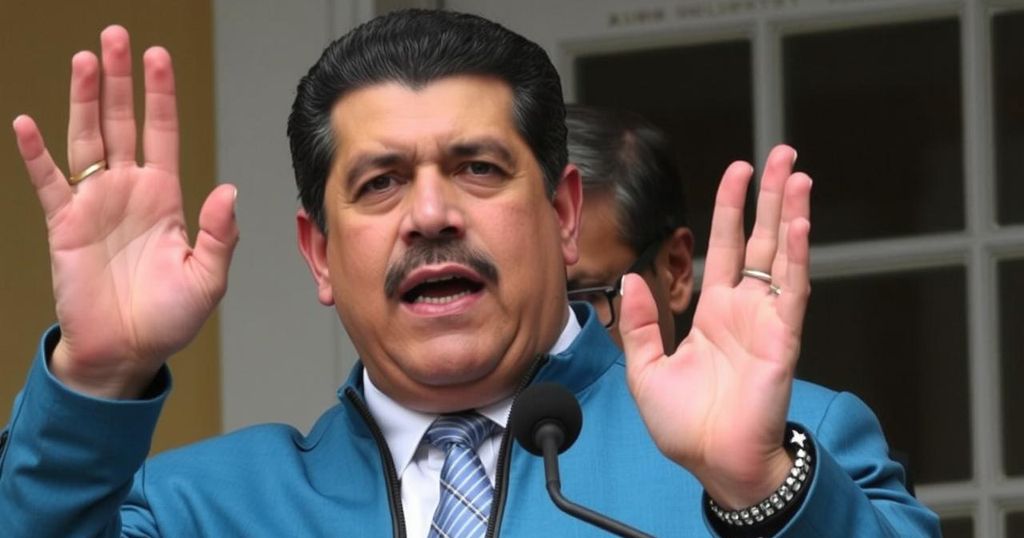Nicolás Maduro was sworn in for a third presidential term in Venezuela after a controversial election, attended by few regional leaders. His inauguration took place a day after opposition leader María Corina Machado’s detention, and the Biden administration announced a reward for information on Maduro’s arrest, highlighting strained international relations.
On Friday, Venezuelan President Nicolás Maduro was inaugurated for his third term in office, an event that took place five months following a disputed election, which the opposition asserted they had won. The inauguration was notably attended by few Latin American leaders, including the absences of notable figures such as Brazilian President Luiz Inácio Lula da Silva and Colombian President Gustavo Petro. This ceremony occurred after the brief detention of opposition leader María Corina Machado the day prior. During Maduro’s swearing-in, the Biden administration declared a $25 million reward for information that could lead to Maduro’s arrest, indicating ongoing tensions in U.S.-Venezuelan relations.
Venezuela has experienced significant political instability in recent years, characterized by economic turmoil, hyperinflation, and a humanitarian crisis. Nicolás Maduro, who has been in power since 2013, has faced accusations of authoritarianism and electoral fraud. The opposition claims that his recent election victory in 2023 was illegitimate, leading to widespread condemnation from both regional and international leaders. The lack of attendance from several Latin American leaders at his inauguration underscores the political isolation Maduro is facing. Additionally, U.S. efforts to apprehend Maduro highlight the strained relations between Venezuela and the United States.
In conclusion, Nicolás Maduro’s inauguration for a third term marks a contentious moment in Venezuelan politics, reflecting deep divisions within the country and significant skepticism from the international community. The absence of regional leaders and the involvement of the Biden administration demonstrate ongoing tensions surrounding Maduro’s presidency and the political climate in Venezuela. This situation further complicates the future political landscape amid calls for democratic reforms.
Original Source: www.democracynow.org






